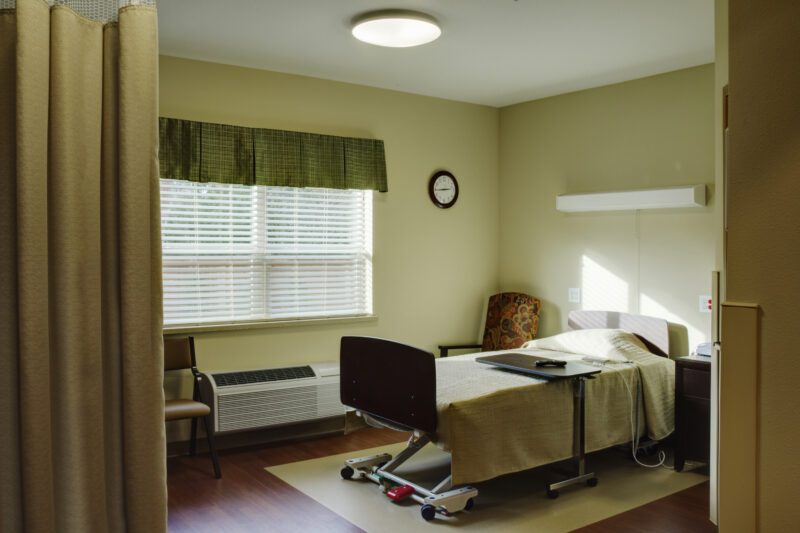The Maine Monitor recently published an investigation with ProPublica about how the disappearance of nursing home beds in Maine is pushing older adults with significant medical needs into assisted housing that the state considers “nonmedical.”
This project was the result of six months of work poring over hundreds of documents from public records requests and interviews with dozens of sources.
Here are five takeaways:
Sparked by a policy change
A state policy change enacted in the mid-1990s amid a severe budget crunch helped spark a dramatic transformation of the aging care system in Maine, where 21.7% of the population is 65 or older — the highest percentage in the country.
Lawmakers and state officials tightened the requirement to qualify for a nursing home in an effort to redirect older Mainers toward options that allowed them to “age in place” at home or in less institutionalized settings for as long as possible.
But it was also a financial decision, aimed at reducing nursing home costs, which are covered by a mix of state and federal funds under MaineCare, the state’s version of Medicaid; the costs had doubled over five years and were the single largest component in the state’s Medicaid budget.
Rise of residential care
Between 1996 and 2022, the number of nursing home beds in Maine dropped by nearly 3,680, from a high of more than 10,000. Numerous Maine nursing homes have closed in recent years.
During the same period, the number of beds at what are known as residential care facilities almost doubled, jumping by more than 4,200.
Residential care facilities in Maine resemble what are known generally as assisted living facilities. These facilities are subject to state regulations, established in 1998, that hold them to much lower minimum staffing, nursing and physician requirements than for nursing homes.
“Nonmedical institutions”
The state considers residential care facilities to be “nonmedical institutions.” But an investigation by The Maine Monitor and ProPublica found that these level IV residential care facilities, the largest in size, are routinely called on to provide medical care to their residents — those suffering from advanced dementia or requiring medication management for conditions such as seizures and heart disease.
The medical needs of residents in Maine’s assisted housing, which includes residential care facilities, has increased 30% since 1998, according to a 2021 report by the Maine Health Care Association.
Medical errors
A review by the Monitor and ProPublica of state inspection records underscored concerns about how these facilities are regulated. State monitoring and investigation reports revealed that of the almost 700 violations issued from 2020 to 2022, roughly 200 involved “medications and treatments.”
While medical errors happen at even the most highly equipped facilities, Maine advocates said the state’s residential care facilities are not set up to handle the level of need they are currently seeing in residents.
Medical errors included:
A facility administering morphine to the wrong resident, who later went to the hospital.
Another facility was cited with a resident’s rights violation in May 2022 for failing to get from the pharmacy a resident’s medication for cardiac issues, nicotine cessation, pain control and seizure activity for three days. The resident was taken to the hospital.
Another facility failed to promptly stock one liter of oxygen for a resident who suffered from “acute respiratory failure.” It took the facility seven days after receiving a doctor’s order to contact a pharmacy.
Long term reform
Amid calls for tighter medical standards, the state is in the middle of a “major long-term care reform effort” aimed at filling the gaps in the state’s aging care system.
Within the next fiscal year, the department’s statutory review of assisted housing programs is expected to “lead to the adoption of updated rules relating to the operation of” residential care facilities, according to the state Department of Health and Human Services.







